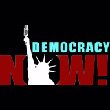Support Grows for Bolivia's Constituent Assembly

Picture:"Puentes bolivianos" By: NEB / Bolivia Now.
Article originally published in Angus Reid Global Monitor : Polls & Research
Support Grows for Bolivia's Constituent Assembly
December 14, 2006
- More Bolivian adults are content with their National Constituent Assembly, according to a poll by Apoyo, Opinión y Mercado. 58 per cent of respondents approve of the legislative body’s performance, up 12 points since October.
Evo Morales—an indigenous leader—won the December 2005 presidential election as the candidate for the Movement to Socialism (MAS), with 53.72 per cent of the vote. He officially took over as Bolivia’s head of state in January. Morales promised to establish a National Constituent Assembly, in order to modify the judicial and economic regulations in the South American country, and bring an end to "centuries of marginalization."
On Jul. 2, Bolivian voters elected 210 representatives to the National Constituent Assembly. Local governments appointed 45 more to complete the group that will re-write the country’s constitution. MAS members secured 135 of the 210 elected seats, followed by We Can (Podemos) with 60 legislators. On Jul. 29, MAS member Silvia Lazarte was nominated as president of the Constituent Assembly.
On Aug. 6, the National Constituent Assembly held its first session. The assembly can sit for one year, and its proposed body of law must be approved by two-thirds of the 255 lawmakers, and then ratified in a nationwide referendum.
For the past few weeks, the National Constituent Assembly has been divided after MAS members called for doing away with the two-thirds consensus and opting for a simple majority in order to pass motions. On Dec. 12, Morales expressed disappointment with the situation, saying, "The sessions have been suspended in order to negotiate, but we have not had negotiations, only protests. Reaching a solution should be in the hands of the assembly members, not the government."
Yesterday, former president Jorge Quiroga criticized the ruling party, saying, "MAS is still dabbling in intransigence, in imposition, in radicalism, and it will not listen to the voices that arise from every corner of Bolivia to urge for respecting law, unity and social peace."
Polling Data
Do you approve or disapprove the performance of the National Constituent Assembly?
Nov. 2006 Oct. 2006 Sept. 2006
Approve 58% 46% 45%
Disapprove 34% 42% 38%
Not sure 8% 12% 17%
Source: Apoyo, Opinión y Mercado / La Razón
Methodology: Interviews with 2,160 Bolivian adults in La Paz, El Alto, Cochabamba and Santa Cruz, conducted from Nov. 13 to Nov. 20, 2006. Margin of error is 3.1 per cent.
Today's Global Monitor Polls & Research













